The cost of a concrete pump truck can be a significant investment for any construction or concrete business. Understanding the price of these trucks is essential, as they are a crucial component for efficiently pouring concrete in various construction projects. Prices for concrete pump trucks can vary considerably based on a range of factors, including the type of pump, brand, size, and whether the truck is new or used.
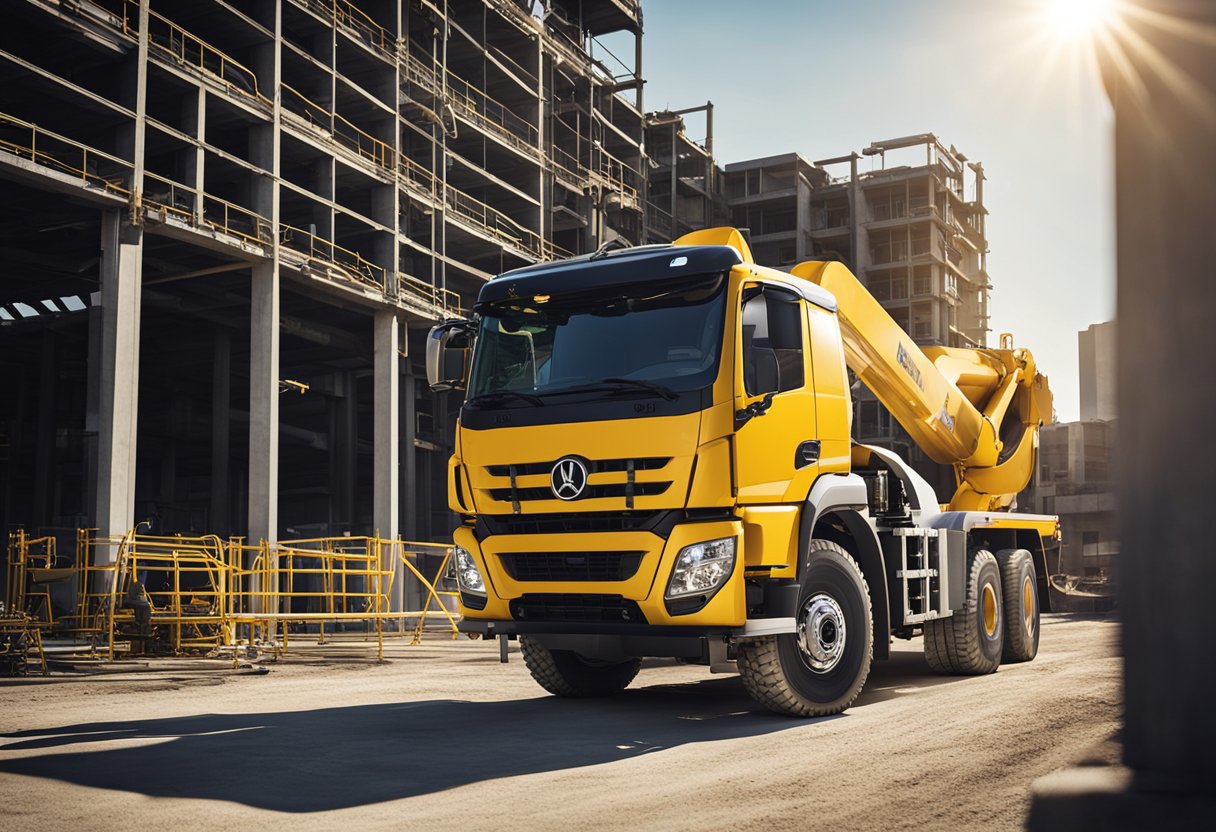
When considering a concrete pump truck purchase, it’s important to weigh the options between buying new or second-hand, as well as considering the potential for rental as an alternative to outright purchase. Operational costs, such as maintenance and labor, and additional expenses like insurance should also be factored into the total cost of ownership. Strategies for minimizing these costs can include regular maintenance schedules, proper training for operators, and choosing a model that best suits the specific needs of your business’s typical projects.
Contents
Key Takeaways
- Concrete pump truck costs fluctuate based on model, age, and specifications.
- Weighing the benefits of renting versus purchasing can impact long-term expenses.
- Additional costs include operational expenses, maintenance, and potential insurance.
Understanding Concrete Pump Trucks
https://www.youtube.com/watch?v=B5lUTr5lYUY&embed=true
As an expert in the field, I want to clarify what a concrete pump truck is and its role in modern construction. A concrete pump truck combines a standard concrete truck with an attached pump and an extendable, articulating boom. This apparatus allows me to convey liquid concrete to specific locations at a construction site, even at considerable heights and distances.
Key Components:
- Pump: A hydraulic pump powers the transfer of concrete from the mixer to the desired location.
- Boom: The extending arm, or boom, is used to navigate the concrete to precise points, with lengths varying from under 20 meters to over 60 meters.
- Controls: High levels of control and accuracy are achieved through remote controls that operate the boom.
Types of Concrete Pump Trucks:
- Boom Pumps: Ideal for large-scale projects, with a long-reaching boom for high and far placement.
- Line Pumps: Smaller scale projects benefit from flexible hoses attached to the pump, allowing concrete placement in difficult-to-reach areas.
By understanding the essential functions and types of concrete pump trucks, it’s clear how these vehicles improve efficiency and precision in concrete placement. Their cost will depend on various factors such as the length of the boom, the brand, model, age of the truck, and the technology accompanying it. The decision to invest in a concrete pump truck can significantly affect project timelines and labor costs, making it crucial to choose the right type based on project needs.
Factors Influencing the Cost of Concrete Pump Trucks
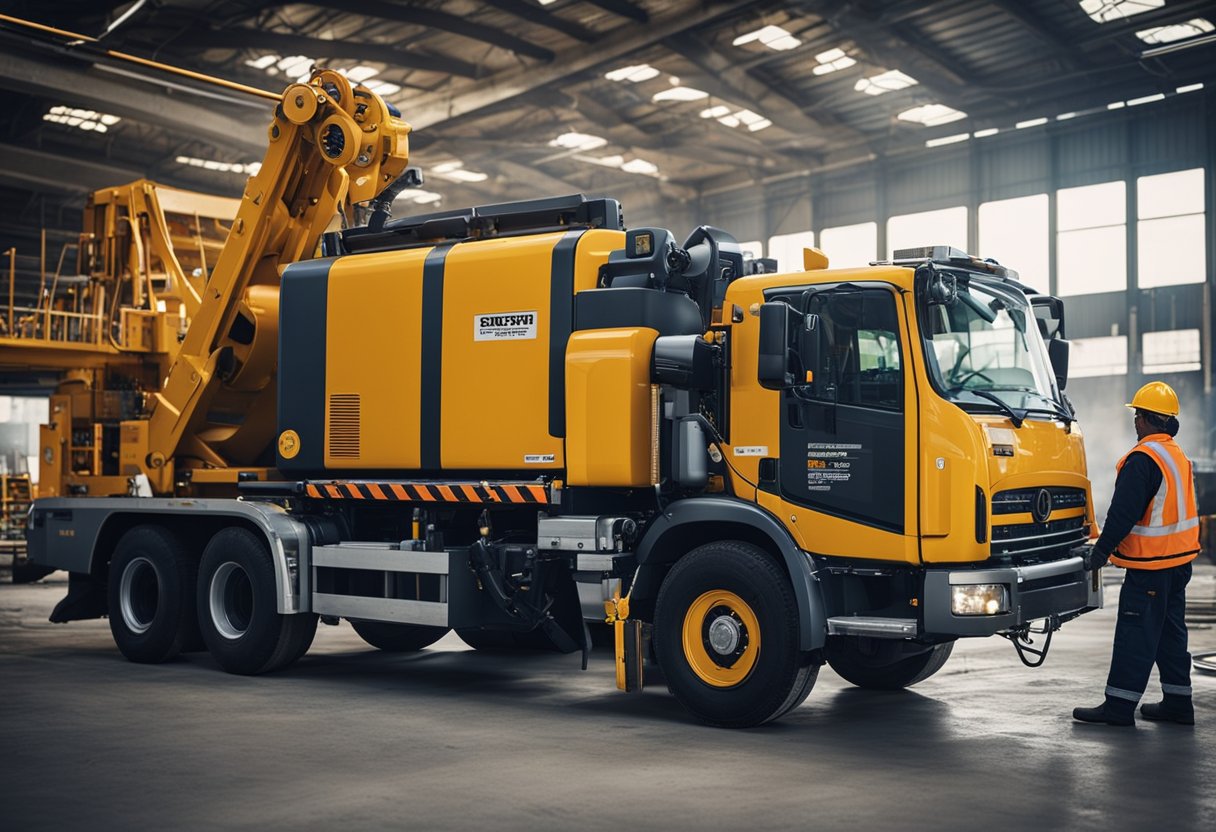
The cost of concrete pump trucks can vary widely and is influenced by several factors. As someone with expertise in the industry, I will guide you through the main cost variables.
-
New vs. Used: A new concrete pump truck is typically more costly than a used one due to the latest technology, lack of wear, and manufacturer warranty. However, opting for a used concrete pump truck could be economical, provided it’s in good condition.
-
Capacity and Size: The truck’s size and its pump capacity, measured in cubic yards per hour (yd³/hr) and PSI (pounds per square inch) output, are critical. Larger pumps with higher PSI ratings command higher prices.
-
Manufacturing Brand: Premium brands with established reliability and technology might charge more for their pump trucks.
-
Delivery Costs: Another consideration includes delivery costs, which can be significant, especially if the truck comes from a distant manufacturer or is being imported.
-
Features and Accessories: Added features such as remote control operation or advanced boom technology can also increase the price.
-
Maintenance History: For used trucks, a well-documented maintenance history can increase the value of the truck, as it assures me of its condition.
-
Market Demand: Lastly, market demand can influence pricing. A spike in construction activity can drive up prices due to increased demand.
In summary, when I’m in the market for a concrete pump truck, I consider these factors carefully to understand the total cost of ownership and make a well-informed investment.
New vs. Used Concrete Pump Truck Costs
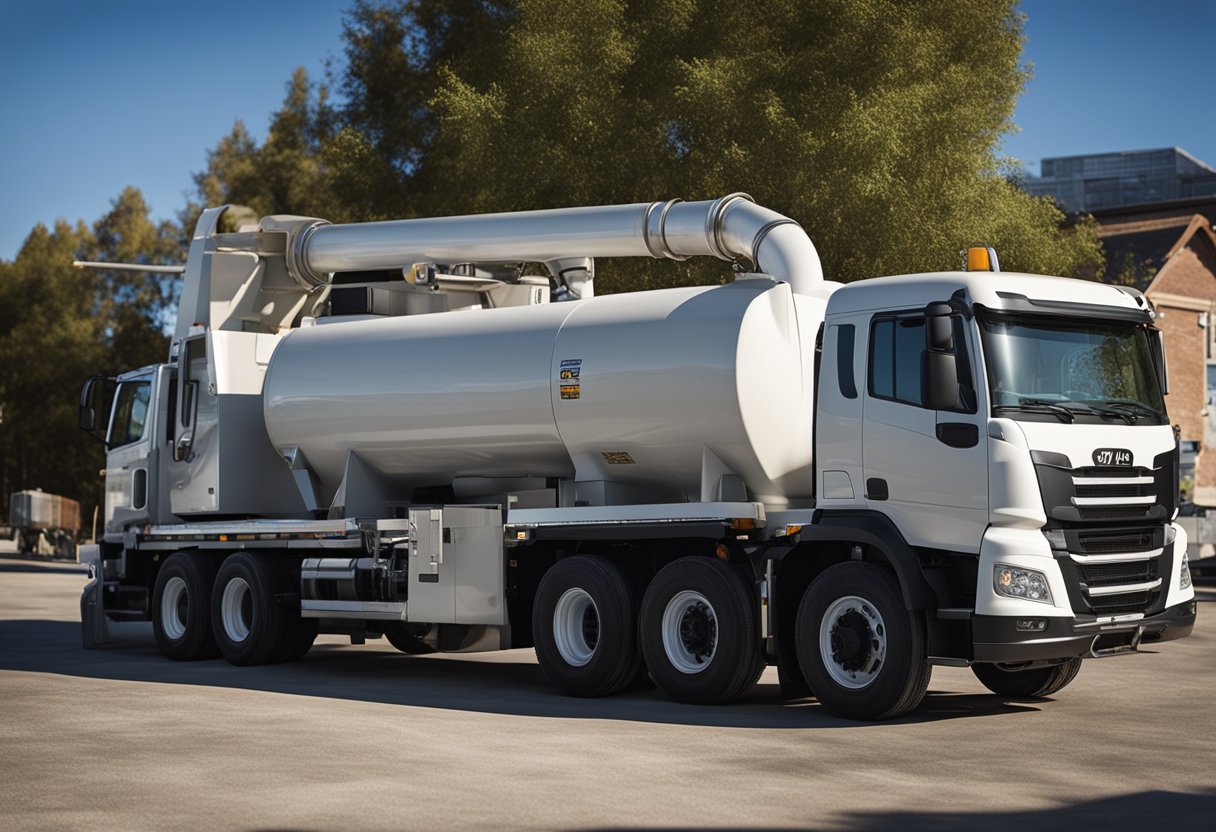
When considering the acquisition of a concrete pump truck, I find that the decision between choosing a new or used model significantly influences the cost. A new concrete pump truck can be a substantial investment, with prices generally starting from around $100,000 and can go as high as over $1,000,000, depending on the brand, model, capabilities, and added features.
In contrast, used concrete pump trucks can be more affordable. The cost varies based on factors such as age, condition, and hours of operation. Typically, prices can range from as low as $30,000 to upwards of $100,000 for models in better condition with fewer hours.
| Condition | Average Cost Range |
|---|---|
| New | $100,000 – $1,000,000+ |
| Used | $30,000 – $100,000 |
The initial lower cost of a used pump truck may seem appealing, but I always take into account additional factors. These can include potential repairs and maintenance costs. A new truck often comes with a warranty and the assurance of modern features and efficiencies, whereas a used truck might require more frequent repairs and updates.
In conclusion, when I weigh my options between new and used concrete pump trucks, I consider not only the upfront cost but also the long-term investment and potential additional expenses. Making an informed choice depends on my budget, business needs, and the level of risk I am willing to accept.
Renting vs. Purchasing Concrete Pump Trucks
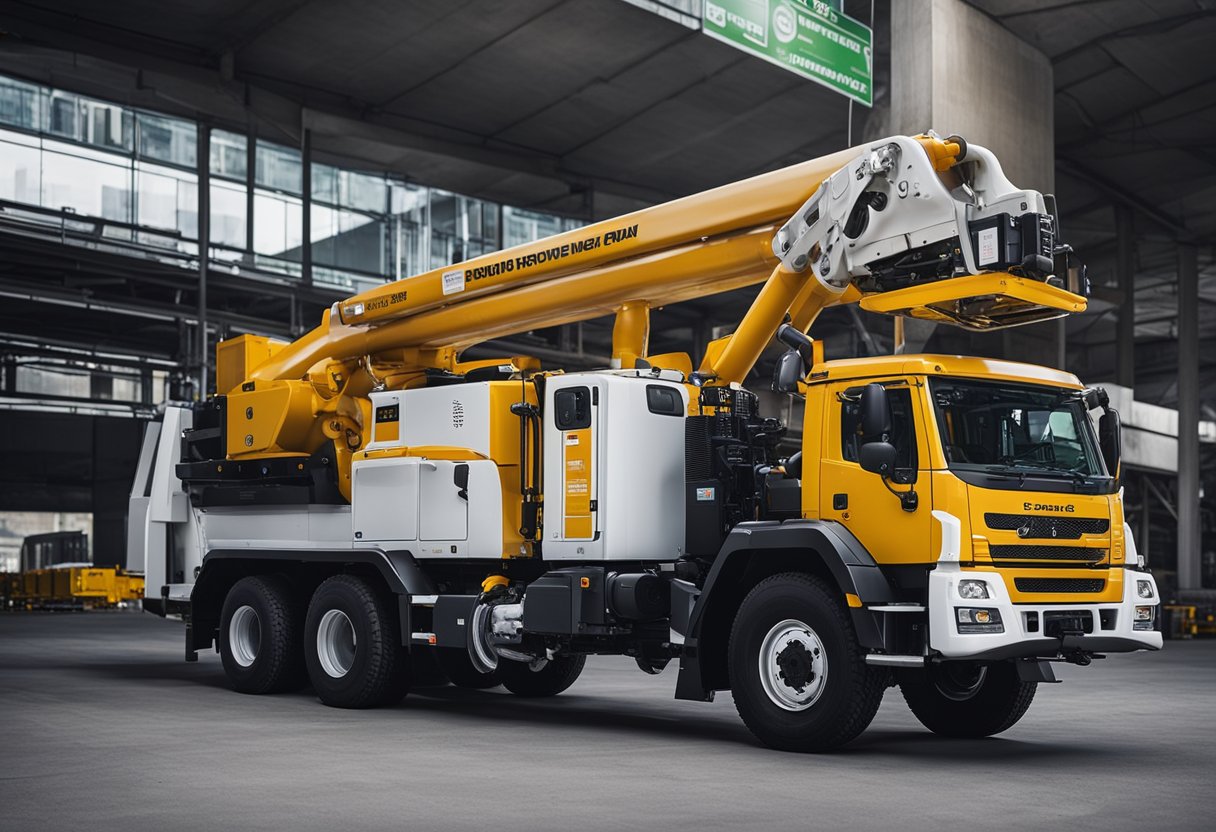
In my analysis of the costs associated with concrete pump trucks, I’ve found clear distinctions between renting and purchasing these vital pieces of equipment. When it comes to renting, the primary advantage is flexibility. Renting allows you to pay for a concrete pump truck only when it’s needed, and the cost can be charged per hour or by a flat rate, depending on the rental agreement.
Costs for Renting:
- Hourly Rates: can vary depending on the model and age of the equipment.
- Lease Agreements: might offer a lower per-hour cost but often require a longer-term commitment.
On the other hand, purchasing a concrete pump truck is a long-term investment. The upfront cost can be significantly higher, but for frequent and ongoing construction projects, owning might be more cost-effective in the long run. Additionally, there are financing options that can ease the initial financial burden.
Costs for Purchasing:
- Initial Purchase: varies widely based on the truck model and features.
- Maintenance: ongoing costs but offers the advantage of equity buildup.
When considering whether to rent or purchase, I calculate the break-even point to determine which option is more financially prudent based on my anticipated use. If I anticipate frequent and regular use, purchasing could be justified. However, if my usage is sporadic or I’m concerned about depreciation and maintenance costs, renting might be the smarter choice. The decision boils down to evaluating my project’s duration, frequency of required equipment use, and available capital.
Costs of Different Types of Concrete Pumps
https://www.youtube.com/watch?v=iRRlSsTdCHQ&embed=true
To make an informed decision regarding the purchase of concrete pumps, it’s essential to understand the costing structure of various types. Costing varies primarily based on the type, performance capabilities, and size.
Trailer-Mounted Concrete Pumps
Trailer-mounted concrete pumps, being highly mobile and requiring little setup time, have a cost range influenced by their pumping capacity and features. For a standard trailer pump, the purchasing price may vary from $90,000 to $200,000. These portable concrete pumps are valued for their simplicity of operation and their ability to be hitched to vehicles for transportation to different construction sites.
Skid Steer Concrete Pumps
Skid steer concrete pumps are smaller and more compact than trailer-mounted units, suitable for space-constrained sites and smaller applications. The investment for such pumps generally falls between $20,000 and $40,000. Skid steer pumps are notable for their versatility and can be ideal for residential or complex urban projects where maneuverability is key.
Trailer and Skid Steer Concrete Pump Costs
Trailer-Mounted Concrete Pumps:
-
Standard Models:
- Range: $90,000 – $200,000
- Features: Portable, good capacity
-
Advanced Models:
- Higher Price Range
- Features: Increased capacity, additional features
Skid Steer Concrete Pumps:
-
Standard Models:
- Range: $20,000 – $40,000
- Features: Compact, versatile
-
Advanced Models:
- Higher Price Range
- Features: Enhanced efficiency, custom configurations
The cost reflects not only the initial outlay but also encompasses factors such as maintenance, operational efficiency, and component life spans, making these investments significant in the long run. My examination of these costs is grounded in current market standards and a clear-eyed assessment of each pump’s advantages in diverse construction scenarios.
Concrete Prices and Delivery Options
https://www.youtube.com/watch?v=VOo-qFWtpY0&embed=true
When it comes to concrete delivery, the key factors affecting cost are the type of concrete, the amount needed, and the type of delivery service. These variables can significantly sway the total price.
Ready-Mix Concrete
For standard construction jobs such as sidewalks and driveways, ready-mix concrete is the go-to choice. I find that the cost of ready-mix concrete can vary but usually ranges between $120 to $150 per cubic yard. Delivery fees can also apply, especially for smaller loads. It’s crucial to order the correct amount, as surplus concrete wastes both concrete and money.
Short Load Concrete
When the project doesn’t call for a full truckload of concrete, short load concrete delivery becomes the economical and practical option. Short load services often charge by the cubic yard with additional part-load fees. In my experience, this might include a flat-rate delivery fee and a mixing charge, leading to a total cost that’s typically higher per cubic yard compared to full truckloads.
Type of Delivery
The type of delivery can profoundly impact the final cost. I’ve noticed two main delivery options: a barrel truck or a volumetric mixer. Barrel trucks deliver ready-mix concrete with a limitation on delivery time and concrete amount. On the other hand, volumetric mixers mix the concrete on-site, allowing for more flexibility and reduced waste. Volumetric mixers might incur a higher initial cost, but can be cost-effective for large projects where the precise amount of concrete isn’t known upfront.
For precise costs and options, it’s always best to consult with local providers as prices and services can vary depending on the region and the current market conditions.
Operational Expenses and Additional Costs
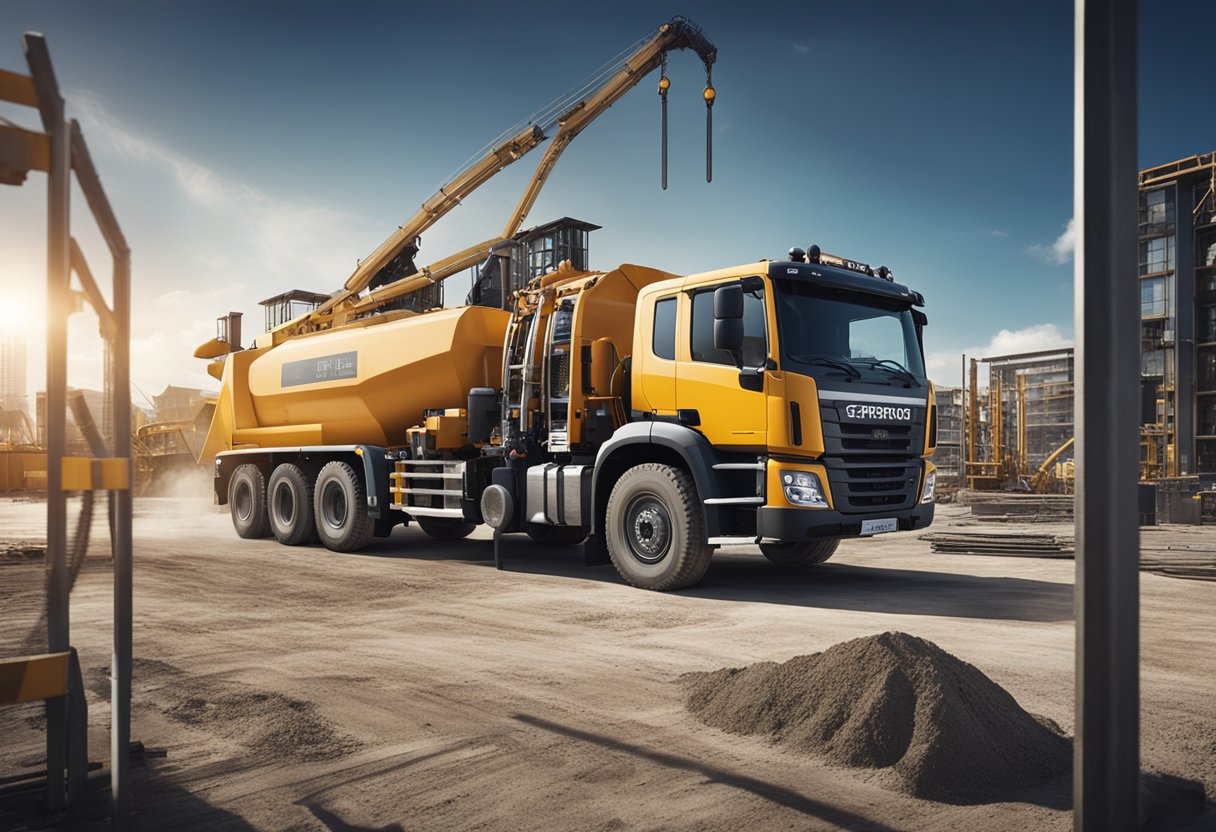
When calculating the cost of a concrete pump truck, it’s important to include the operational expenses in my budget. Here are the critical components to consider:
- Fuel Consumption: A significant ongoing cost is fuel. Depending on the model and the operating conditions, fuel costs can vary.
- Maintenance and Repairs: Regular maintenance is essential to keep the truck running efficiently. Parts can be expensive, and labor costs should not be underestimated.
Hourly Operating Costs
| Expense Type | Approximate Cost |
|---|---|
| Operator Wages | $20 – $30 per hour |
| Fuel | Variable |
| Maintenance | $0.5 – $3 per hour |
-
Delivery Costs: The distance from the batching plant to the job site increases fuel expenses.
-
Miscellaneous: Include costs for insurance, tire wear, and potential downtime.
Remember, the hourly operational cost of a concrete pump truck averages between $50 to $200, but can be higher based on local rates and the specific job requirements.
Strategies for Minimizing Concrete Pump Truck Expenses
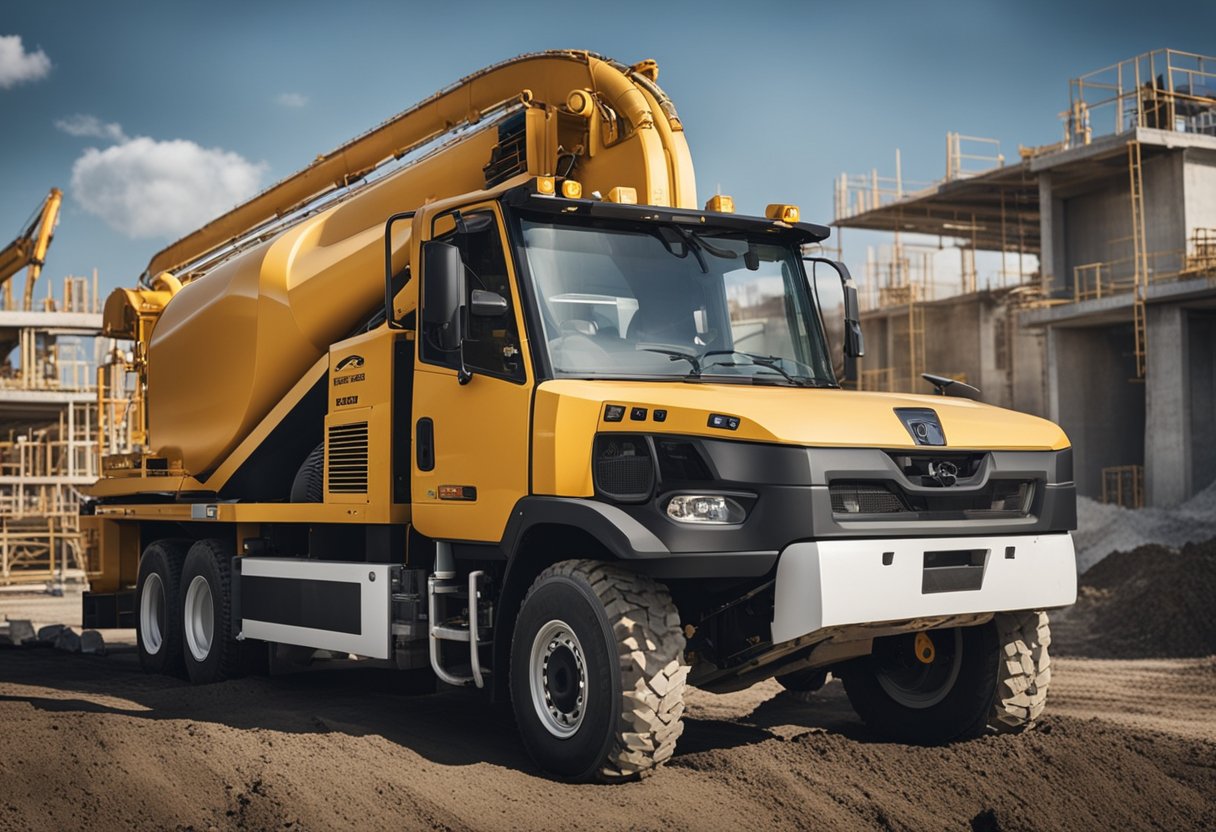
When it comes to lowering the expenses associated with concrete pump trucks, I’ve learned that there are several strategies worth considering. Here are some points that I believe can be instrumental:
Buy Used Equipment
Purchasing a used concrete pump truck can be a savvy financial decision. The depreciation hit is absorbed by the initial owner, so I can often find these trucks at significantly reduced prices. It’s vital to inspect the equipment thoroughly or have it inspected by a professional to ensure it’s in good working condition.
Consider Equipment Rental
Renting a concrete pump truck may be more cost-effective for short-term projects. It eliminates the need for significant capital outlay, and I don’t have to worry about maintenance or storage costs.
Optimize Scheduling
Maximizing the use of the truck by careful scheduling can reduce idle time. Efficient use means I can potentially complete more projects with the same equipment, reducing the per-project cost of the pump truck.
Regular Maintenance
Routine maintenance can prevent costly repairs down the line. I make it standard practice to follow the manufacturer’s recommended maintenance schedule to maximize the longevity and reliability of my concrete pump truck.
Train Your Operators
Well-trained operators can run the pump truck more efficiently and prevent operational errors that might lead to costly downtimes or repairs.
By integrating these tactics into my business operations, I’ve experienced firsthand the impact on reducing the overall costs associated with concrete pump trucks. Ensuring a balance between cost, usage, and maintenance is key to getting the best value from these heavy-duty vehicles.
Frequently Asked Questions
https://www.youtube.com/watch?v=Ix9F5nBtADk&embed=true
When considering the acquisition of a concrete pump truck, it’s essential to understand the various factors that affect pricing. Let’s explore some common questions buyers have.
What factors influence the cost of a concrete pump truck?
The cost is influenced by the brand, pump type, truck specifications, boom length, and whether it’s new or used. Performance capabilities also play a role, as well as the country of manufacture.
What is the average price range for a new concrete pump truck?
For a new concrete pump truck, prices can range from $100,000 to over $400,000, depending on the features and specifications.
How does the size and reach of a concrete pump truck affect its price?
Larger pump trucks with longer reach typically cost more due to increased material and engineering requirements. The price escalates with the boom length and the complexity of the machinery.
Is it more cost-effective to rent or purchase a concrete pump truck?
Renting can be more cost-effective for short-term or infrequent use, while purchasing may be economical for regular, long-term projects. It also depends on the business’s financial considerations.
What are the ongoing maintenance and operational costs associated with owning a concrete pump truck?
The ongoing costs include regular maintenance, repairs, fuel, and operator wages. These costs can be significant over time and should be factored into the total cost of ownership.
How does the inclusion of additional features or technology in a concrete pump truck impact its overall cost?
Additional features such as advanced technology, control systems, and safety features increase the cost. However, they can also enhance efficiency and safety, potentially providing long-term savings.

